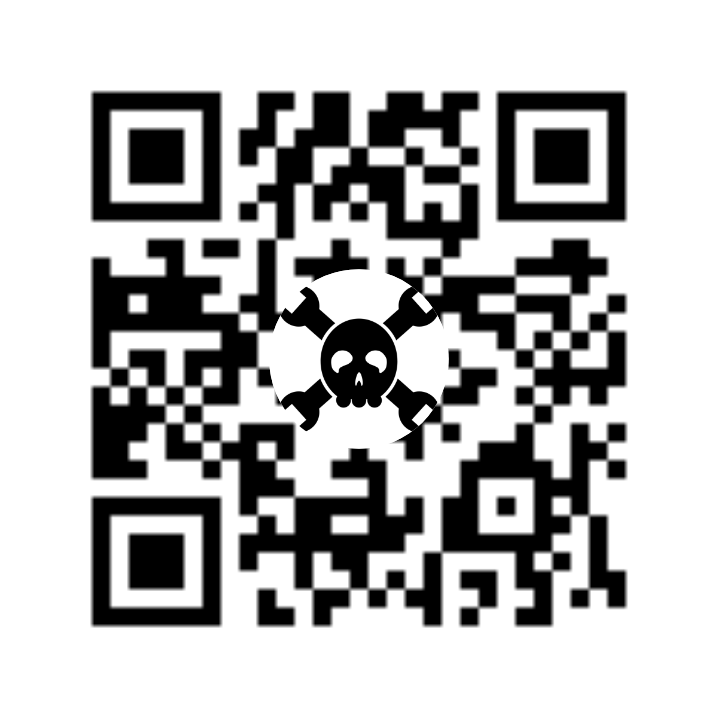QR codes are something that we all take for granted in this day and age. There are even a million apps to create your own QR codes, but what if you want to make a barcode? How about making a specific kind of barcode that follows UPC-E, CODE 39, or even the infamous… CODABAR? Well, it might be more difficult to find a single app that can handle all those different standards. Using “yet-another-web-app”, Barcode Tool – Generator & Scanner, you can rid these worries, created by [Ricardo de Azambuja].
When going to [Ricardo]’s simple application, you will find a straightforward interface that allows you to make far more different strips and square patterns than you’ve ever imagined. Of course, starting with the common QR code, you can create custom overlaid codes like many other QR generators. More uniquely, there are options for any barcode under the sun to help organize your hacker workspace. If you don’t want to download an app to scan the codes, you can even use the included scanner function.
If you want to use the web app, you can find it here! In-depth solutions to rather simple problems are something we strive to provide here at Hackaday, and this project is no exception. However, if you want something more physical, check out this specialized outdoor city cooking station.
















In SVG or PNG mode either the icon or the QR is blurred. Naturally in PNG mode neither should be blurred since it is lossless. Other than that, thanks for an amazing tool!
I wanted to see the “infamous Codabar”, but it doesn’t work. It throws the following exception:
Which suggests that the page is just a nice wrapper for a Barcode Writer library. At least the generator part. Not that it’s wrong, but it turns out that it’s actually not that hard to find an app that supports much more barcode types: https://bwip-js.metafloor.com/demo/demo.html
CODABAR (^[ABCD][0-9-$:\/.+]*[ABCD]) is working now!
Zint Barcode Generator is the best tool for this. It runs locally (command line or GUI), it can do way more code types, it can even bulk generate hundreds of barcodes from a text file.
That certainly does cover a lot of symbologies. Now where did I put my CueCat?
QR codes as a form of “lowest common denominator” communications. A visual SMS.
What a weird and unrelated inclusion there in the last sentence. And whats up with the out of place square brackets on the name? Seems like someone is automating the copying of text from some other source.
You must be new here.
Have you never been here before?
Both of these things are normal for Hackaday’s style.
The last sentence is because they end basically every post with a recommendation and link to another one. It’s usually either a similar project or something sort of opposite like linking to a hardware build at the end of a software post. Admittedly this one seems a bit more random than usual.
The brackets are how they denote names. They always try to credit the original creator on this site but lots of creators go by nicknames or handles that are so random it isn’t always clear where the name starts and ends. The brackets fix that.
Literally every Hackaday post going back 20 years uses the [creator’s name] format. Also, linking to a related article is fun, useful, and a standard part of user retention…
My bank uses PhotoTAN, which looks like a QR-code with red/green/blue dots. (https://upload.wikimedia.org/wikipedia/commons/b/bd/PhotoTAN_mit_Orientierungsmarkierungen.svg)
Every time I have to scan one of those, I’m astounded by just how quickly they are picked up. Where a QR code might need the camera to carefully align and have a clean and stable view, then a phototan code is picked up when I vaguely wave my phone towards the screen.
Any similarly ‘better’ codes out there, preferably non-propriatary?
PS: Cronto Visual Cryptogram seems to be the non-marketing name: https://free-barcode.com/barcode/barcode-types/cronto-visual-cryptogram.asp
What your app is looking for is that very thick black outline. I wouldn’t be surprised if it’s easily confused or fooled by boxed items that aren’t PhotoTAN. Color barcodes are great when it works but in general it can be completely unreadable depending on lighting. To further complicate matters, generic printing colors are CMYK, not RGB.
My bank uses “regular” QR codes on their website to scan with the app, and fairly large ones (49×49 px, such that they need the extra alignment marks). Any regular QR scanning app can scan them, they just lead to a custom URI scheme (://CC;pgom?token===). My phone’s camera scanner with QR mode needs to be pointed at the QR (or any QR) and held still for a few seconds to pick it up. A specialized QR app is fairly quick but needs to be pointed at the right direction and held still.
But my banking app, as soon as the camera on my phone is started I can just swivel the phone towards my pc screen and it immediately scans, and refreshes the page to the “confirm login on your app” while my phone shows a blurry image of the QR. I think that app is hyperfocused at reading exactly one type of V8 QR code, which is why it can be so fast.
This actually drives me nuts. I want to get the QR code nice and centered, but as soon as it enters the frame at all it gets recognized. Tough on my OCD, but I suppose it’s a tech win.
Curious, is this a CueCat code? That reminds me of the logo.
Sadly, this generator is VERY incomplete in what it can generate. This site can generate most everything while this site does most with fine grained options.
We have 16 competing visual code generators now (it was 15)
They can make great Aztec patterns for refit era Star Trek ships